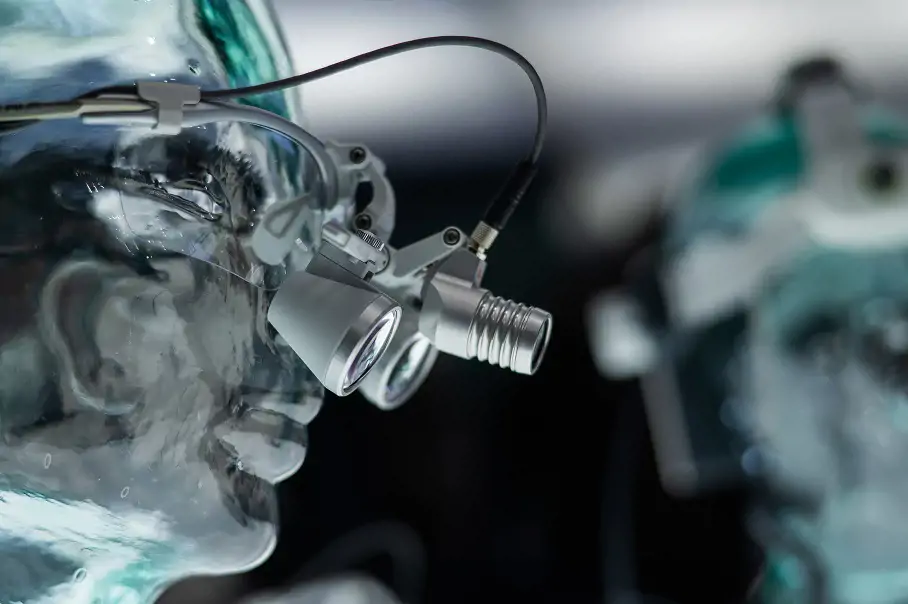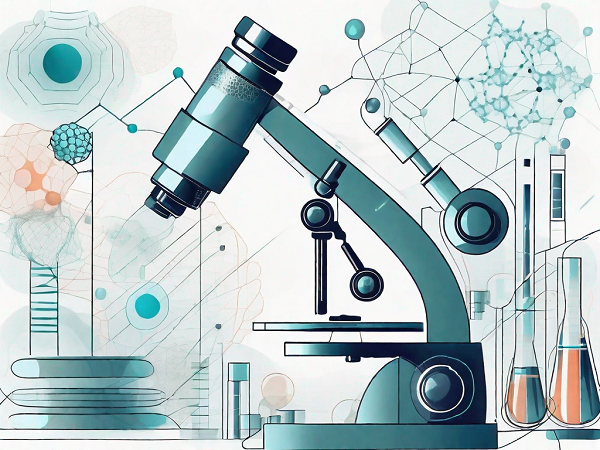
Quick CV Dropoff
Send us your CV

In the fast-paced and ever-evolving field of life sciences, finding highly skilled life science engineers is crucial for companies looking to stay ahead of the curve. These professionals play a vital role in driving innovation, ensuring compliance, and optimizing processes within the life sciences sector. However, selecting the right candidate for this challenging role can be a daunting task for hiring managers. The interview process serves as a valuable opportunity to assess a candidate's suitability and potential contribution to the organization. To make the most of this critical evaluation phase, it is essential to employ effective interviewing techniques that delve deep into the candidate's skills, knowledge, and cultural fit. In this article, we will explore the key techniques and strategies for interviewing life sciences engineers.
Before diving into the interview process, it is essential to gain a comprehensive understanding of the role life science engineers play in the life sciences industry. These professionals are responsible for a broad range of tasks, from conceptualizing and designing new products to ensuring adherence to regulatory standards and improving manufacturing processes. They are critical in driving research and development initiatives, optimizing operational efficiency, and enabling companies to bring innovative life science products to market. By comprehending the significance of this role within the organization, you can better tailor your interview questions and assessment criteria to identify the most suitable candidates.
life science engineers are at the forefront of innovation and technological advancements. They are responsible for pushing the boundaries of scientific research and translating it into practical applications. These professionals work closely with cross-functional teams, including researchers, scientists, and manufacturing experts, to develop cutting-edge products that have the potential to revolutionize healthcare and improve the quality of life for millions of people.
One of the key responsibilities of life science engineers is to ensure compliance with regulatory requirements, such as FDA guidelines. They must have a deep understanding of the regulatory landscape and stay updated with the latest changes and updates. This knowledge allows them to navigate the complex regulatory environment and ensure that the products they develop meet all the necessary safety and quality standards.
Life science engineers also play a crucial role in conducting risk assessments and implementing mitigation strategies. They analyze potential risks associated with the development and manufacturing processes and devise strategies to minimize or eliminate them. This proactive approach helps in mitigating potential issues that could arise during the product lifecycle and ensures the safety and efficacy of the final product.
Collaboration is another essential aspect of the role of life science engineers. They work closely with other departments, including research and development, quality assurance, and manufacturing, to achieve organizational goals. Effective communication and teamwork skills are crucial for successful collaboration, as they enable seamless knowledge sharing and coordination among different teams.
To evaluate candidates effectively, it is vital to assess their understanding of the key responsibilities associated with being a life science engineers in the life sciences sector. These responsibilities may include:
An ideal candidate should demonstrate a clear understanding of these responsibilities and provide relevant examples from their past experiences.
Engineers are problem solvers at heart. They possess strong problem-solving and analytical abilities, which enable them to identify and address complex challenges that arise during the product development process. Their ability to think critically and come up with innovative solutions sets them apart in the highly competitive life sciences industry.
Furthermore, engineers must have excellent communication and teamwork skills. They need to effectively communicate their ideas and findings to different stakeholders, including scientists, engineers, and executives. Collaboration and teamwork are essential for successful product development, as it requires input and expertise from various disciplines.
While technical skills are crucial for engineers, it is equally important to assess the candidate's soft skills, communication abilities, and cultural fit within the organization. Some of the essential skills and knowledge areas to evaluate during the interview process include:
Assessing these skills will help you identify candidates who can effectively navigate the challenges of the role while contributing positively to the organization's overall mission.
Engineers in the life sciences industry are instrumental in driving innovation and bringing life-changing products to market. Their expertise and dedication play a pivotal role in advancing healthcare and improving the well-being of individuals worldwide. By understanding the role of engineers and evaluating candidates based on their skills and knowledge, you can build a strong and capable team that will propel your organization to new heights.
Proper preparation is key to conducting effective interviews that yield valuable insights into candidates' suitability for the engineering role. Before the interview, it is crucial to define the key competencies you want to assess in candidates. This involves identifying the core skills, knowledge areas, and traits that are critical for success in the role. Once you have clarified these competencies, you can design interview questions that specifically target them, allowing you to make a more accurate assessment of each candidate.
One important aspect of preparing for the interview process is understanding the specific needs of your organization and the role itself. By aligning the key competencies with these needs, you can ensure that the interview questions are tailored to evaluate candidates in a way that is relevant to the position. This ensures that you are able to identify candidates who possess the necessary skills and qualities to excel in the engineering role.
When identifying the key competencies to assess during the interview process, it is important to focus on those that align with the specific needs of the organization and the role itself. Some competencies to consider include:
By clearly defining these competencies, you can structure your interview questions to assess each candidate's proficiency in these areas. This allows you to gain a comprehensive understanding of their abilities and suitability for the engineering role.
Furthermore, it is important to consider the specific context in which these competencies will be applied. For example, if the engineering role requires working on complex projects with tight deadlines, it may be important to assess a candidate's ability to work under pressure and manage time effectively. By tailoring the interview questions to the specific needs of the role, you can ensure that you are evaluating candidates in a way that is meaningful and relevant.
Interview questions should be carefully crafted to elicit specific information that helps evaluate a candidate's suitability for the engineering role. Instead of simply asking hypothetical or general questions, focus on designing situational and behavioral questions that require candidates to provide concrete examples of how they have demonstrated specific skills or handled challenging situations in the past. This approach allows you to assess a candidate's abilities based on their actual experiences and actions.
For example, you could ask a candidate to describe a project they worked on that required significant problem-solving skills. By asking for specific details about how they approached the problem and what the outcome was, you can gain insights into their problem-solving abilities and their ability to handle complex challenges.
Similarly, you could ask about a candidate's experience collaborating with individuals from different departments or disciplines. By asking how they navigated any challenges that arose and ensured successful collaboration, you can assess their ability to work effectively in interdisciplinary teams.
By designing relevant interview questions, you can gain valuable insights into a candidate's abilities, experiences, and potential for success in the engineering role. These questions allow you to go beyond surface-level responses and delve deeper into a candidate's skills, knowledge, and approach to work.
When it comes to conducting the interview itself, creating a comfortable environment for candidates is crucial. Setting a relaxed and welcoming tone can help candidates feel at ease and enable them to showcase their true abilities and personalities. By establishing a positive atmosphere, you can create a more productive and meaningful interview experience.
To create a comfortable interview environment, start by greeting candidates warmly and putting them at ease. Provide them with a brief overview of the interview process and structure, ensuring they know what to expect. Encourage candidates to ask any questions they may have and address any concerns or uncertainties upfront. By taking these steps, you can foster an environment where candidates can relax and engage in open and honest conversations.
Behavioral interview techniques are highly effective in assessing a candidate's past behaviors, as they provide insights into how individuals have approached specific situations, allowing you to predict their future behavior. During the interview, ask candidates to provide concrete examples of specific situations they have faced and how they handled them. By probing deeper into their responses, you can gain a better understanding of their problem-solving abilities, communication skills, and relationship-building talents. Remember to ask follow-up questions to ensure you have a complete picture of each candidate's experiences.
While soft skills and cultural fit are essential for the engineering role, it is equally important to evaluate candidates' technical skills. The ability to analyze complex problems, apply engineering principles, and find innovative solutions is crucial in this demanding field. During the interview, focus on assessing the candidate's problem-solving abilities and their knowledge of engineering principles within the life sciences sector.
Problem-solving is a fundamental skill for engineers, as they face complex challenges on a daily basis. To assess a candidate's problem-solving abilities, present them with hypothetical scenarios that mirror real-life situations they are likely to encounter in the role. Ask candidates to walk you through their thought process and approach to solving the problem, paying attention to their analytical abilities, creativity, and attention to detail.
A strong foundation in engineering principles is essential for any engineer. During the interview, assess the candidate's knowledge of key concepts and principles within the life sciences sector. Ask them to explain how they have applied these principles in past projects or roles, and encourage them to share any specific examples that demonstrate their expertise.
In addition to technical skills, it is crucial to evaluate a candidate's soft skills and determine their fit within the organization's culture. The ability to communicate effectively, collaborate with others, and align with the company's values and mission are all indicators of a candidate's potential success as an engineering development specialist in the life sciences sector.
Effective communication and teamwork skills are vital for engineers, as they often collaborate with cross-functional teams and stakeholders from various disciplines. During the interview, ask candidates to provide examples of situations that required effective communication or successful teamwork. Pay close attention to their ability to articulate ideas, actively listen, and navigate conflicts while maintaining productive relationships.
Assessing cultural fit is essential to ensure that a candidate will thrive within the organization and align with its values and mission. Look for clues during the interview that indicate the candidate's alignment with the company's culture. Ask them questions about their work style, their preferences for collaboration and autonomy, and their motivations and aspirations. By considering these factors, you can better assess whether the candidate will integrate well within the organizational culture and contribute positively to the team.
By employing effective interviewing techniques for assessing engineers in the life sciences sector, hiring managers can build a team of highly skilled professionals who will drive innovation, optimize processes, and contribute to the overall success of the organization. If you're looking to enhance your interviewing process and identify the right talent for your team, consider reaching out to us. Our expertise in this field can provide you with valuable insights and strategies to make your interviews more effective. Invest in this critical evaluation phase, and you will be rewarded with a team of creative and motivated engineering development specialists who will help propel your organization forward in the dynamic field of life sciences. Contact us today to explore how we can assist you in building a high-performing team.